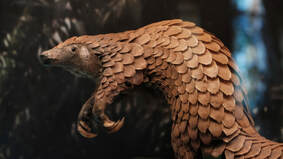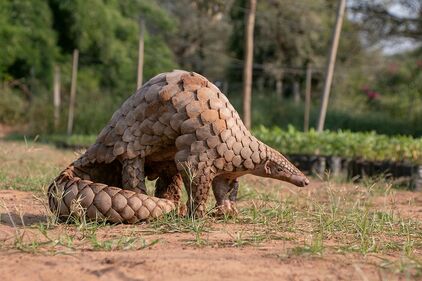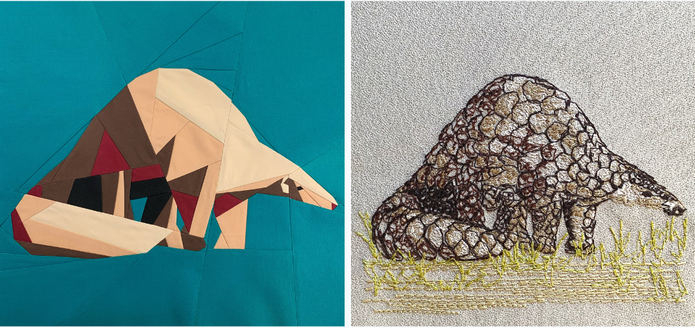 Location: Africa and Asia Status: Vulnerable to Critically Endangered Population: Unknown What’s scaly from tip to tail and can curl into a ball? Pangolins! They look like a cross between an anteater and an armadillo, and are sometimes referred to as scaly anteaters. These solitary, primarily nocturnal animals with very poor eyesight, and are easily recognized by their full armor of scales. A startled pangolin will cover its head with its front legs, exposing its scales to any predator. If touched or grabbed it will roll up completely into a ball, while the sharp scales on the tail can be used to lash out if attacked. Their sense of smell and sound is supreme and is used to hunt out termite mounds and ant hills. Pangolins are the most trafficked mammal in the world right now—with demand primarily in Asia and in growing amounts in Africa—for their meat and scales. There is also demand in the United States for pangolin products, particularly for their leather to be used in boots, bags, and belts. All eight pangolin species are protected under national and international laws, and two are listed as Critically Endangered on the IUCN Red List of Threatened Species. In June of 2020, China increased protection for native Chinese Pangolin to the highest level, which closed an important loophole for consumption of the species in-country. Additionally, the government will no longer allow the use of pangolin scales in traditional medicine, a big win given that an estimated 195,000 pangolins were trafficked in 2019 for their scales alone (Challender, et. al, 2020). Fun Facts Pangolins are the only mammal in the world to be covered from head to toe in scales. They eat an enormous 70 million insects every year and inhabit tropical forests, dry woodlands and the savannah. Some pangolins spend their time up in trees and others sleep in burrows underground. They are about the size of a small cat, are covered in brown scales, and have long, strong tails that can be used as a weapon. Like a skunk, pangolins can release a noxious smelling acid to deter predators. The name Pangolin is derived from the Malay word ‘pengguling’, which means ‘rolling up’. This is reference to the animal’s defence mechanism of rolling up into a tight little hardened ball when they are under threat. Click on the sources below to learn more about the Pangolin, what is being done to help their populations, and how you might get involved. (source: WWF, One Kind Planet, and Aurifil) Check out the November Aurifil Color Builder Thread Club Patterns!
0 Comments
Your comment will be posted after it is approved.
Leave a Reply. |
AuthorSurface Pattern Designer, Quilt Pattern Designer, Art Quilter, Nature Lover, Wife & Momma to one fur-baby Oscar! Archives
October 2022
Categories |



 RSS Feed
RSS Feed